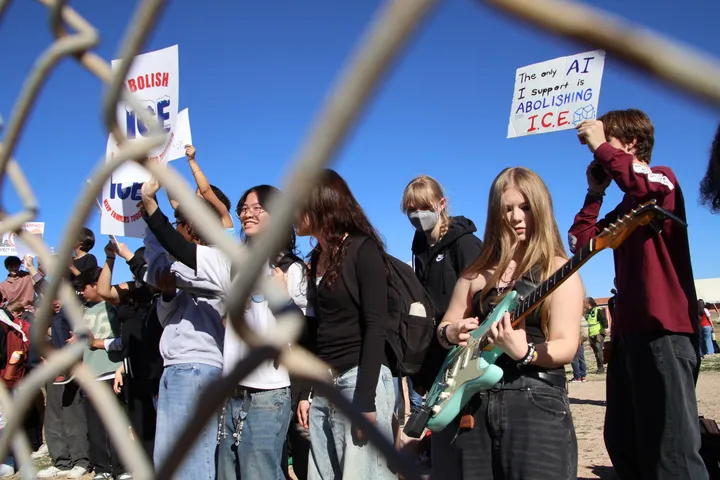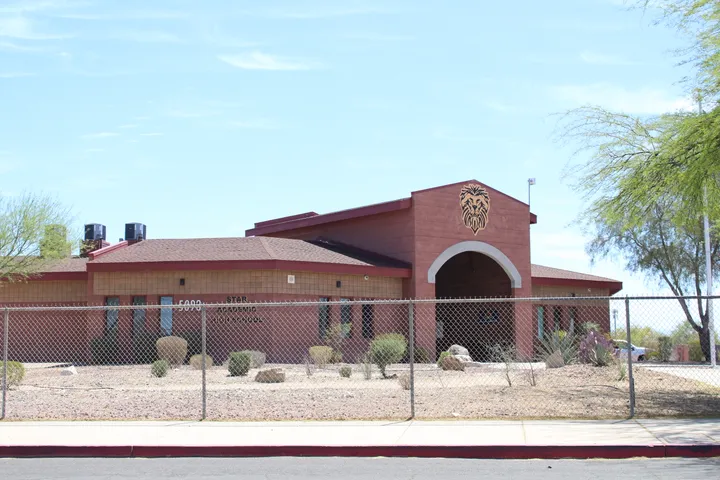UA pushback mounts against Trump education compact
University of Arizona students, faculty, and local leaders plan to voice opposition at a Tuesday event as the university prepares its response.
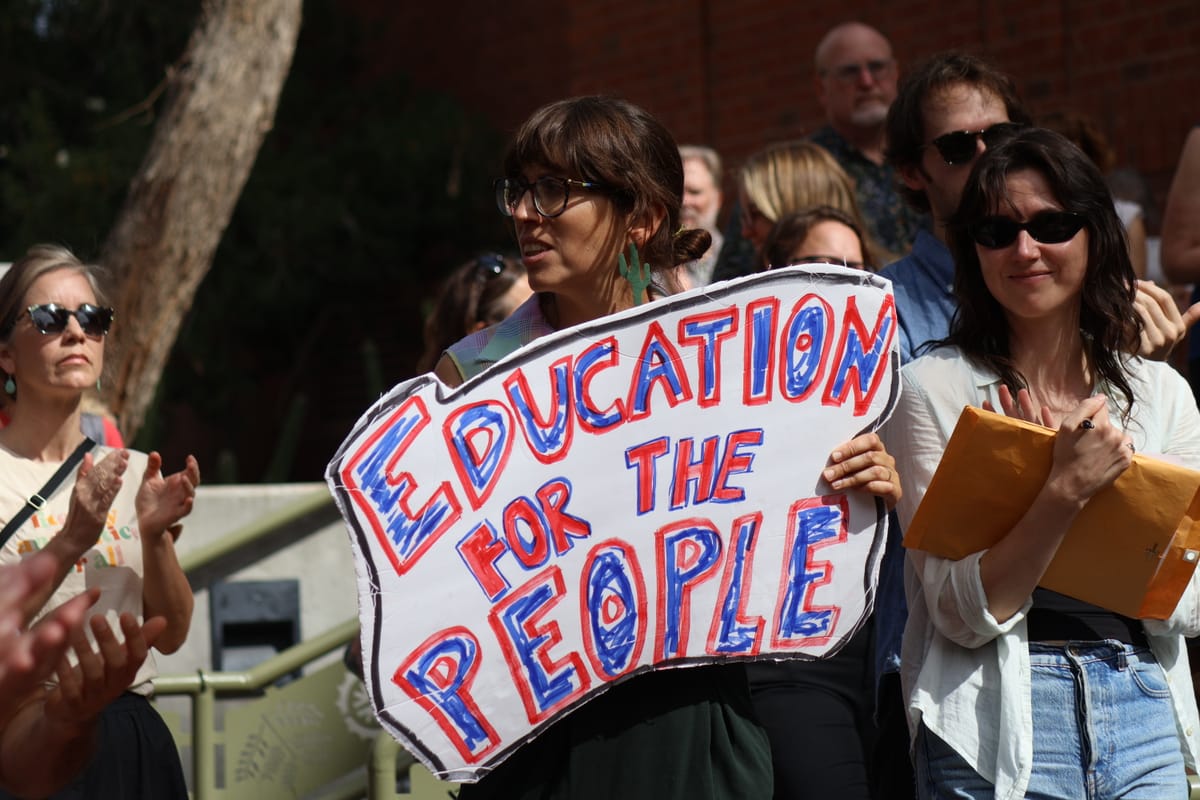
As student protests against the Trump administration’s Higher Education Compact stretch into a second week, University of Arizona officials will face mounting pressure at a Tuesday morning press conference to explain how the university will respond before the Oct. 20 deadline.
The compact sets specific guidelines that universities must follow to maintain federal funding, prompting concern among students, faculty, and local leaders about potential impacts on academic freedom, diversity initiatives, and student resources.
On Oct. 14, the Associated Students of the University of Arizona will formally announce its “unequivocal opposition” to the compact and call upon UA officials and the Arizona Board of Regents to publicly reject it, saying in a news release that the university’s independence is non-negotiable.
On Thursday, the office of UA President Suresh Garimella released a statement saying that it recognizes the proposal has “generated a wide range of reactions and perspectives within our community and beyond” and that the school is working with regents to review the compact to understand its full scope and implications.
“We are also engaging shared governance leaders representing faculty, staff and students, and other leaders across the state and nation to gather their input,” the statement said. “As Arizona’s keystone, land-grant university guided by our strategic imperatives, we will act in the best interests of our students, faculty and staff, and our state. We will continue to keep our community informed as this process moves forward.”
Of the nine universities invited to sign the compact, the Massachusetts Institute of Technology is the only one to have declined ahead of the Oct. 20 deadline.
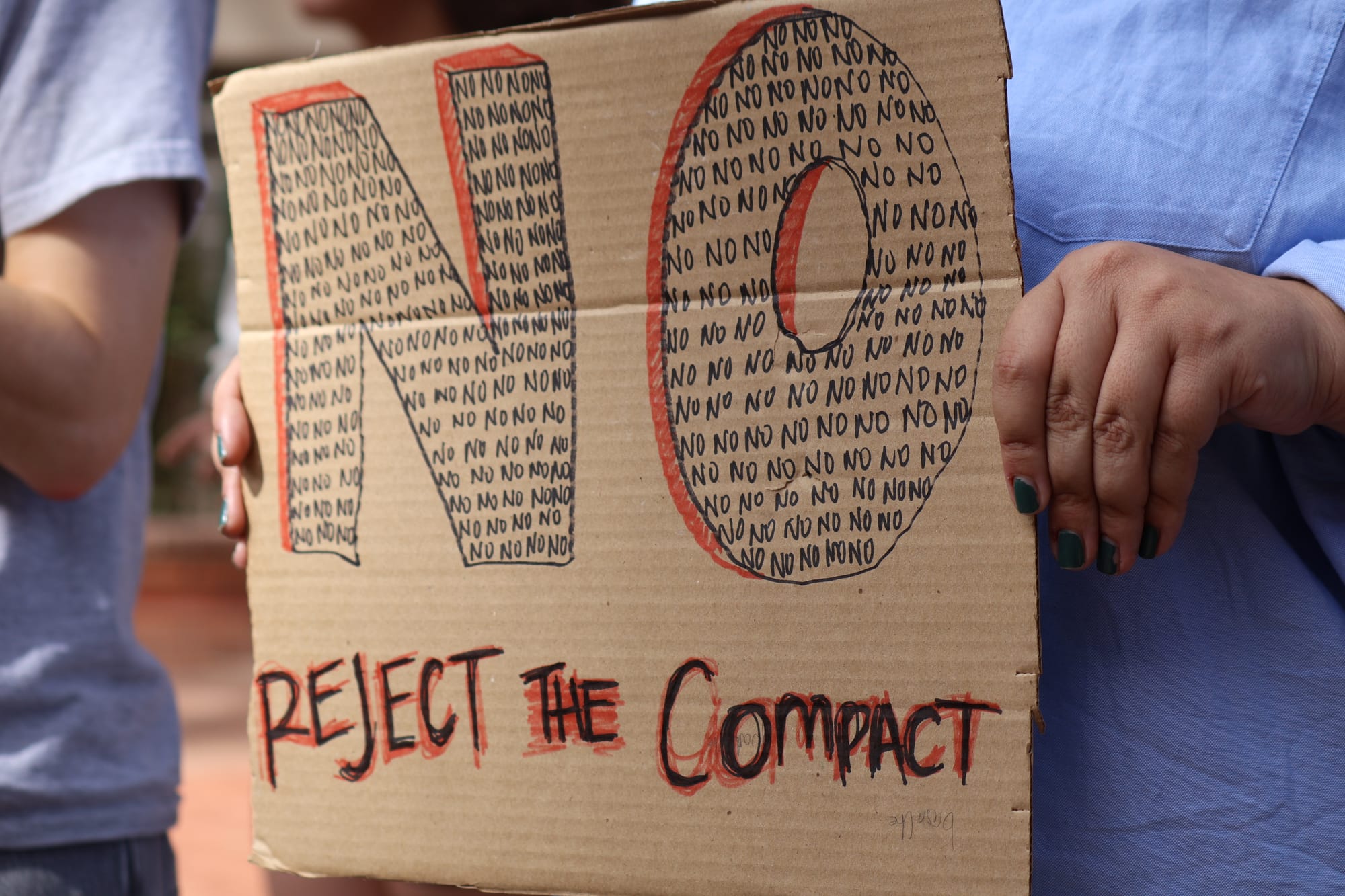
Other universities invited to participate include Dartmouth College, Brown University, the University of Pennsylvania, the University of Southern California, the University of Texas, Vanderbilt University, and the University of Virginia.
The event follows recent protests, listening sessions, and town halls across campus, with faculty, students, and Tucson city leaders expressing opposition to the compact and raising concerns about its impact on diversity, free speech and student rights.
Students for Socialism organizer Desiree Nguyen said that while she was outraged when she first heard about the compact, she was not surprised.
“Yet again, the Trump administration is trying to change the University of Arizona, which is historically supposed to be a land-grant institution and Hispanic-serving institution, to fuel Trump's agenda that is anti-DEI, anti-student, and also attempting to erode our academic freedom,” Nguyen said.
Students for Socialism attended Wednesday’s Tucson City Council meeting, where several students voiced outrage at the compact’s demands. Later in the meeting, the city council unanimously passed a resolution urging UA to reject the compact.
“Now this rests on Garimella … to see if he is going to be able to shoulder not just the pressure from the faculty senate bill that occurred earlier this week, not just from students organizing and organizing in the outrage, but also now the city of Tucson looking back at him too,” Nguyen said.
The city council’s resolution says that, as a land-grant institution, UA should continue its work “that champions access, independence, and opportunity for all.”
Before the meeting, council members Rocque Perez and Lane Santa Cruz released a joint statement condemning the compact and asking for it to be addressed at the meeting.
“The resolution affirms the City of Tucson’s opposition to federal interference and disinvestment in higher education, while expressing confidence in UA’s leadership to uphold its responsibility and reject federal overreach,” the statement said.
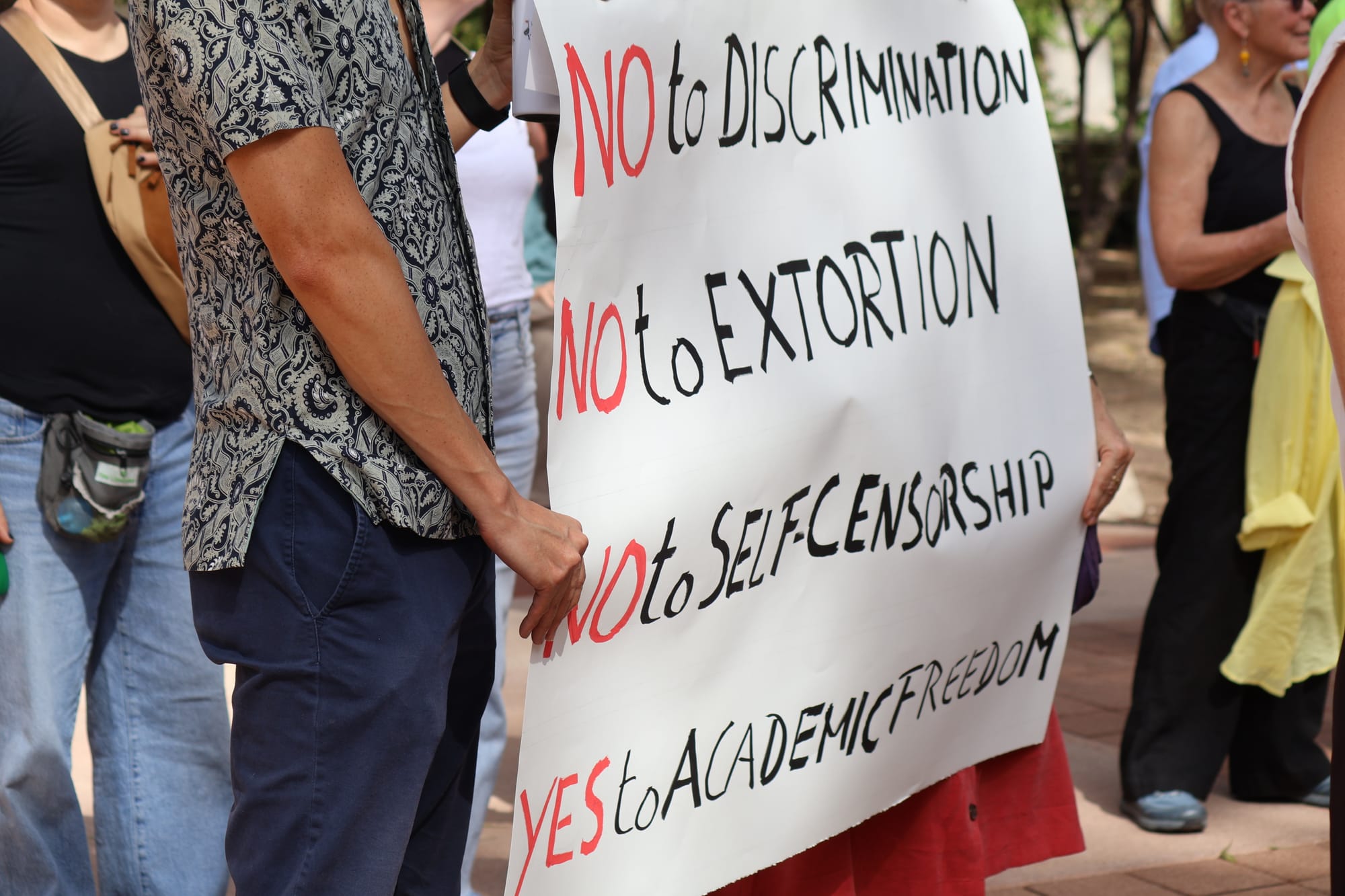
The UA Faculty Senate passed its own resolution urging the UA not to sign the compact, and ASUA President Adriana Grijalva co-authored a letter with student body presidents from the other eight universities outlining concerns about the agreement.
“Our administrations have been presented with a false choice between their commitments to knowledge and education and our access to the resources that sustain them,” the letter said. “To preserve our status as world leaders in education, we must remain true to the foundation of academic freedom that has propelled us forward.”
Nguyen said Students for Socialism hopes to work with ASUA to demonstrate a united front.
“Not just with our student organizations, but with students in general, that we are frustrated,” Nguyen said. “We understand the ASUA is supposed to be impartial, but this compact is not an impartial, or an impartial act by the administration.”
She hopes that continuing to put pressure on Garimella will force the administration to listen to their community and act accordingly.
On Thursday, a crowd of about 40 students gathered outside the Koffler Building in advance of the ASUA listening session, protesting the compact and hoping to apply pressure on Garimella to hear their concerns.
“I want this protest to, at the very least, ensure safety of free speech for students,” said Kayleb Stout, who expressed concern about growing threats against free speech rights.
Another student, Luis, said he hoped the event would help UA officials “hear that student voices matter.”
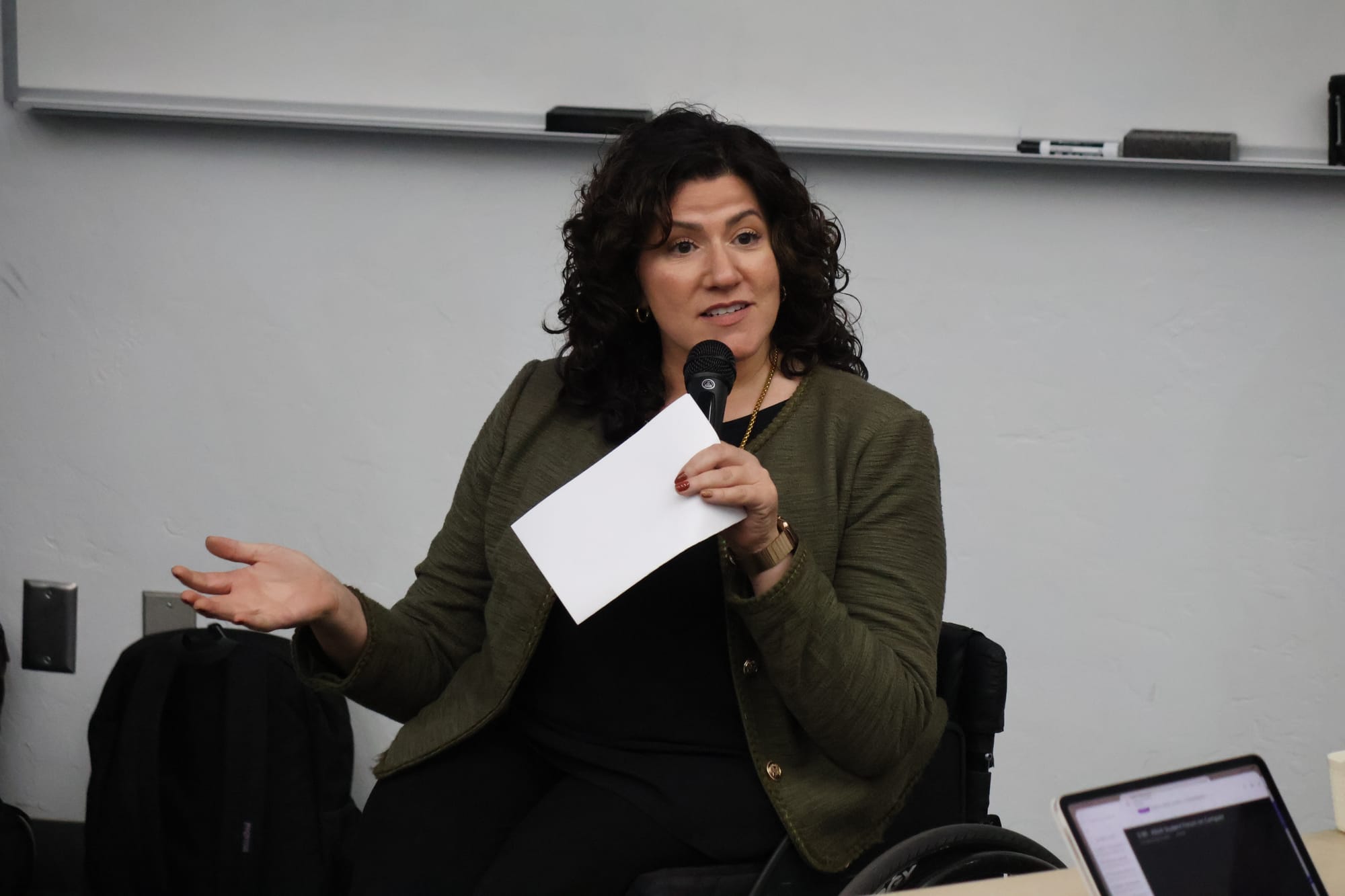
After the protest, students filed into a classroom for the listening session. Vice President for Student Affairs Amanda Kraus said the goal of the event was to gather students’ questions and concerns and pass them along to UA officials.
“In the last week since we were made aware of this invitation, the president and the provost have met with lots of different people, including students, undergrads, grad students, all different types of leadership and governance committees,” Kraus said. “We do have an opportunity to process what's in the compact and respond before deciding what the next steps are.”
Ben Armentrout, a member of the Graduate and Professional Student Council representing the College of Optical Sciences, criticized the compact’s vague language, saying its interpretation is extremely confusing.
“It’s incoherent, probably intentionally, and it doesn't necessarily say the clear outcomes of signing or not,” Armentrout said. “This letter offers no clear benefits. It offers no clear punishments for not signing the letter. It will be leveraged regardless of whether or not we sign it. It will be leveraged for a lot of control over what we do.”
John Piamonte, co-president of the Asian Pacific American Student Council, said that the section referring to “student equality” creates a false perception of the cultural resource centers on campus.
“The compact … suggests restricting cultural centers and humanities programs that fail to serve students,” Piamonte said. “Cultural Resource Centers … have always been inclusive and for everyone. They provide belonging, education, and support that improve retention and success, especially for marginalized students.”
With UA’s status as a land-grant and Hispanic-serving institution, signing the compact would betray those identities and the students it seeks to serve, Piamonte said.
Daelyn Nez, Miss Native UA, said the compact would set a precedent for other land-grant institutions to disregard Native students and their needs.
“The one thing that comes to mind when we read this compact is our sovereignty,” Nez said. “Our education is non-negotiable for us. For us, it's not just a personal achievement. It's a way that we return back to our homes, to our communities. It's how we become change makers. It's how we become advocates. We're not going to stand for it, because as a people, our sovereignty is non-negotiable.”
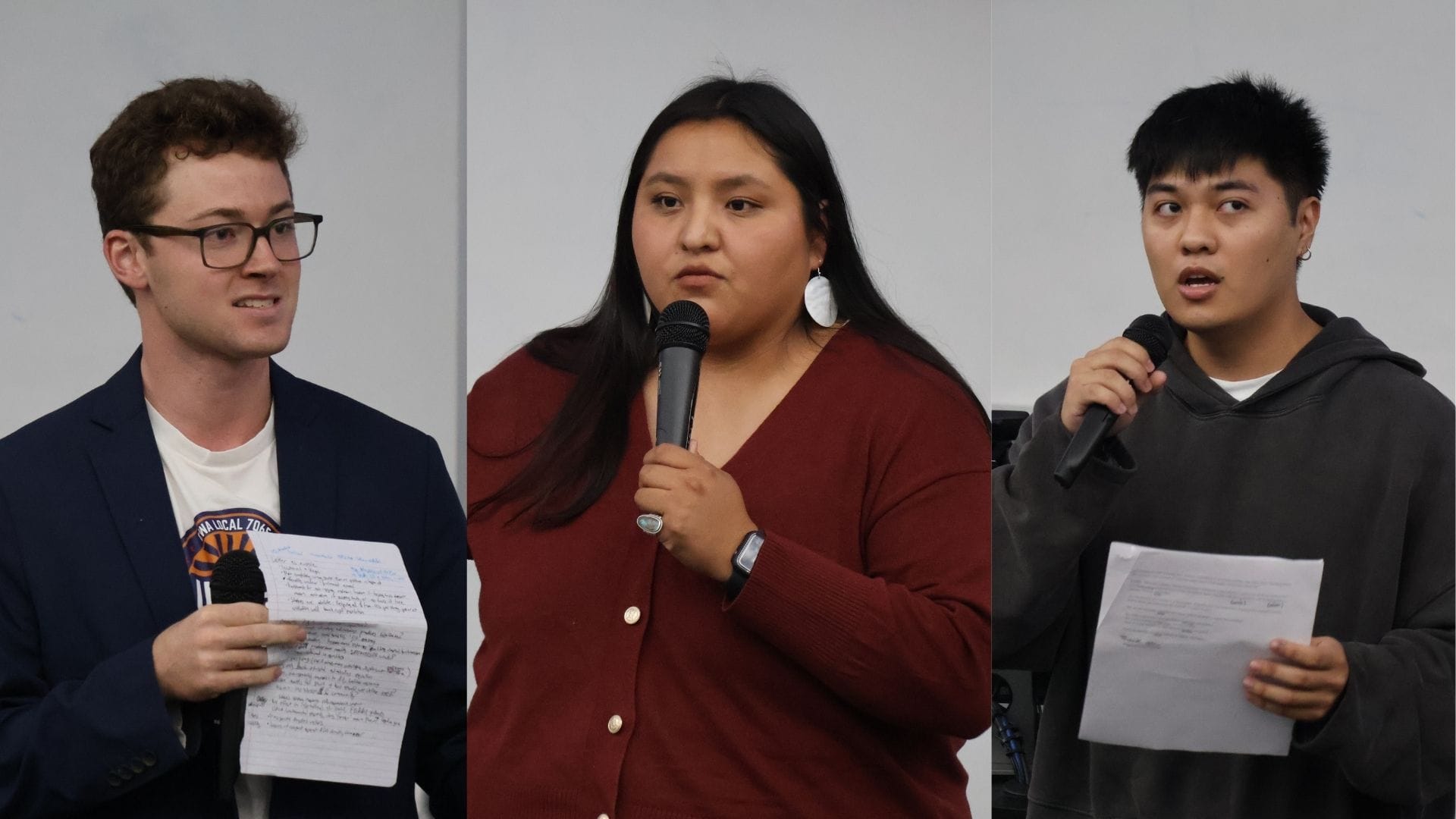
Harvey Ortiz, a second-year Ph.D. student in molecular and cellular biology and a National Hispanic Scholar, said they chose to pursue their degree at the university because of its Hispanic-serving designation and diversity.
“I chose to stay here because of our commitment to Hispanic and Native students,” Ortiz said. “When Garimella was signed on, he was reported as saying he was excited to inherit our commitment to diversity and serving our indigenous communities. If we were to sign this compact, he would be losing not only what he was excited to represent and inherit, but the key principles and tenets of this university.”
Inez, a senior majoring in anthropology, said the compact will directly impact international students.
“The proposal to limit the intake of international students is, at its core, a direct affront to the American values of inclusivity, freedom and opportunity,” she said. “Immigrants and international students have no obligation to see this as their home, but they play a fundamental role in shaping our nation's progress, both intellectually and culturally.”
Grijalva said she was grateful for the students who shared their concerns.
“I feel heartbroken that our students have to carry this weight,” Grijalva said. “Hearing the students tonight, I hope that the administration thinks about them in this decision, and they're not an afterthought.”
The next day, Grijalva posted a statement on Instagram regarding the compact.
“Last night, ASUA held a student discussion. We listened. We heard your pain, your fear, your frustration. I want you to know this: We are with you. You are not alone,” Grijalva said. “This university is home to students who have fought to be here, many overcoming generational odds, and who see education as not just a degree, but as a source of hope. We are here to learn, to grow, and build futures.”
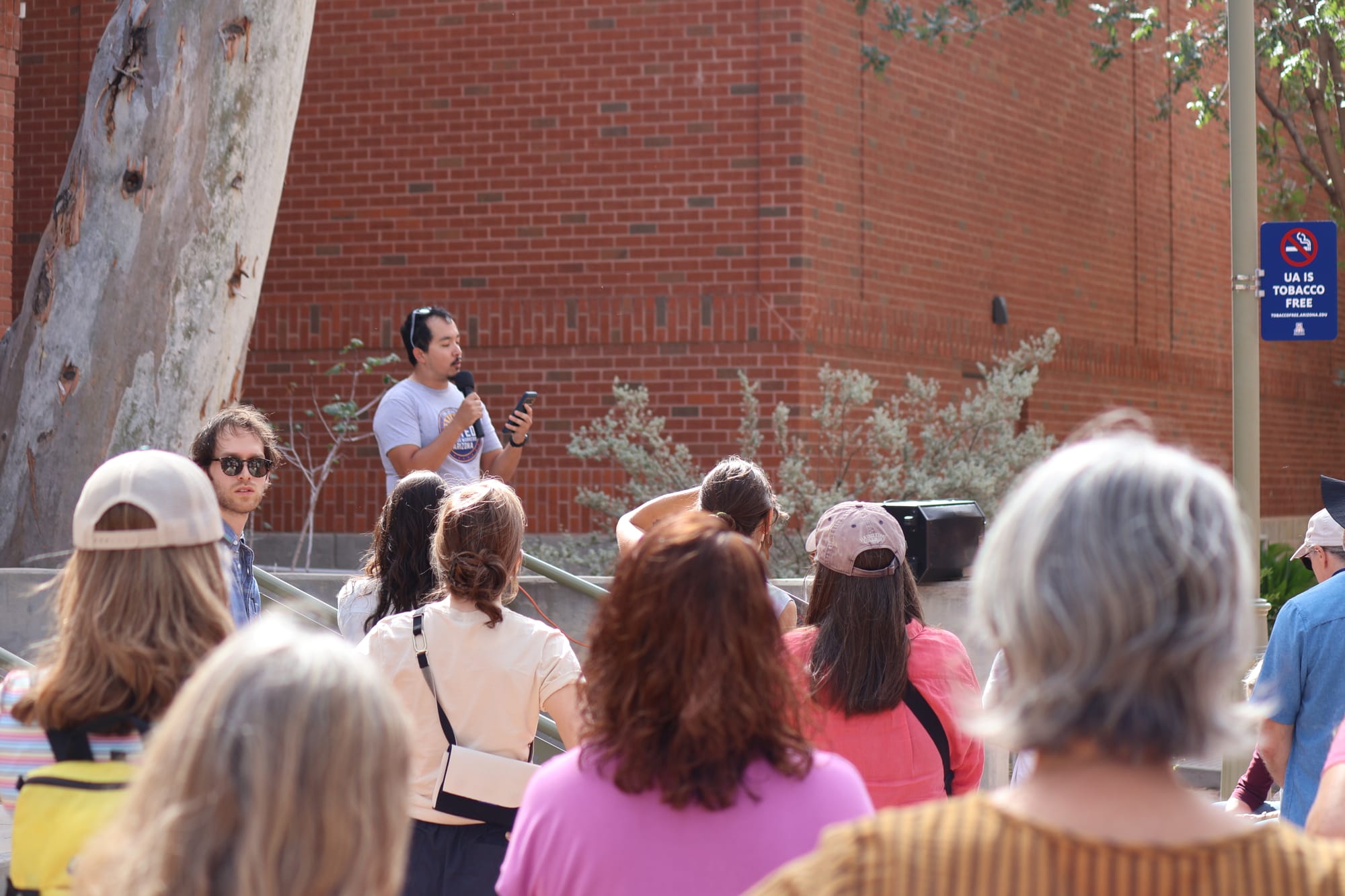
The compact threatens to disrupt that path, and students cannot remain silent, she said.
“We will not stop organizing, advocating, and fighting to ensure that whatever decision is made reflects the voices of the students who make this university what it is,” Grijalva said. “I strongly urge our administration not to sign this compact.”
Faculty members met Friday for a listening session of their own, the same morning that MIT became the first and only school to reject the compact.
Marcos Esparza, acting president of the United Campus Workers Union, called on the university to join MIT, saying the administration has already taken away student resources.
“It is clear that this is an effort to remove avenues for those who are the most marginalized from attending our university,” Esparza said. “We've already seen our university leadership capitulate to the Trump administration by shutting down our cultural resource centers, our writing skills improvement program, and most recently, the closure of U of A micro campuses in China.”
These actions make it reasonable to assume that Garimella and UA leadership want to sign the compact, Esparza said.
“That's why, to protect our free speech, academic freedom and the ability for any student who wants to learn here and attend our universities, we have to fight back,” he said. “The compact represents fundamentally undoing the principles and mission of an academic institution.”
Another faculty member said that universities exist to conduct rigorous research, to build and train students to grow new knowledge, and the way to do that is to seek out the best-educated, most creative, and most accomplished people to teach them.
“To have another person come in and say, ‘I'm going to tell you who can teach at your university, and when they're there, I'm going to tell them what they can say,’ is a fundamental betrayal of the principles of the university,” he said.
Emma LaPointe is a journalism, political science and German Studies major at the University of Arizona and Tucson Spotlight intern. Contact her at emma.m.lapointe@gmail.com.
Topacio “Topaz” Servellon is a reporter with Tucson Spotlight. Contact them at topacioserve@gmail.com.
Jacob Balderrama is a Pima Community College student and Tucson Spotlight intern. Contact him at jacobb.marv@gmail.com.
Tucson Spotlight is a community-based newsroom that provides paid opportunities for students and rising journalists in Southern Arizona. Please consider supporting our work with a tax-deductible donation.

